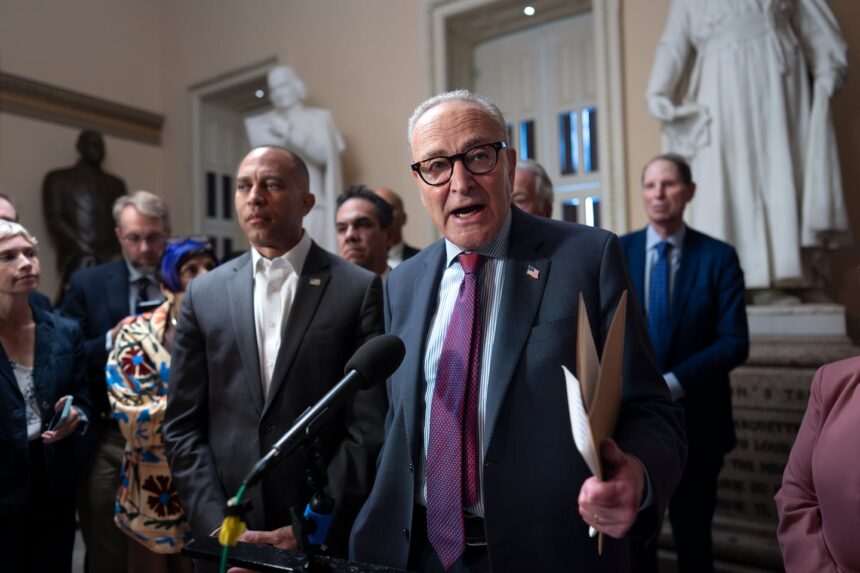In a contentious political environment, negotiations surrounding health care tax credits are intensifying as the expiration date looms. With a significant divide among Republicans, there is growing uncertainty regarding the extension of subsidies that have provided critical financial support to millions of Americans.
Recent enrollment figures indicate that participation in Affordable Care Act (ACA) plans has surged to a record 24 million. This increase is largely attributed to enhanced subsidies that have made health insurance more affordable, allowing lower-income individuals to access plans with no premiums and capping costs for higher earners at 8.5% of their income. However, the looming expiration of these subsidies threatens to reverse these gains, with many policyholders already receiving notifications of potential premium hikes of up to 50%.
Senate Democratic Leader Chuck Schumer has expressed alarm about the impending cost increases, warning that unless Congress acts promptly, numerous Americans could soon face drastic changes in their health insurance costs. This situation puts enormous pressure not only on lawmakers but also on the health insurance industry, hospitals, and state governments that depend on federal support for Medicaid.
The political landscape is further complicated by the looming threat of a government shutdown at the end of the month. Democratic leaders have made it clear that any plans to keep the government running must include the extension of health care subsidies. In contrast, Republican leaders are advocating for more time to consider potential cuts to these subsidies, an issue that is expected to spark lengthy debates and negotiations.
The situation is particularly precarious for those living in competitive political districts, where formulating a bipartisan solution could be crucial for both parties heading into midterm elections. For instance, 15 House Republicans from politically vulnerable districts have introduced legislation to extend the tax credits for an additional year. Representative Jen Kiggans of Virginia emphasized the importance of not allowing these subsidies to expire without a viable plan.
Despite some bipartisan acknowledgment of the need to address rising costs, Republican opinions vary widely. On one hand, Senators like Josh Hawley warn that failing to act could lead to “massive” premium increases that would make insurance unaffordable for many. On the other hand, some Republicans, including Senator Ron Johnson, have voiced strong opposition, citing the high costs associated with the subsidies.
As open enrollment begins on November 1, the insurance market braces for what could be a significant and disruptive shift in pricing. Some lawmakers are concerned that the impending announcements of higher premiums will lead to “real sticker shock” for consumers.
In a climate where consensus appears elusive, the decisions made in the coming weeks will have profound implications not only for health care policy but also for the political futures of those involved. As discussions continue, the stakes are clear: millions of Americans’ access to affordable health care hangs in the balance.






